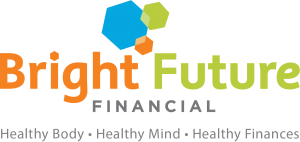Could you access $2,000 spare cash in an emergency? Australian households are feeling the budget pinch, struggling to cover the most basic living expenses pay-to-pay. So, do you know where your money’s going, and can you do better?
The Rising Cost of Living
In its 2015 report, Facing financial stress, Wesley Mission found 38% of NSW households were spending more than they earn.
It’s no secret the cost of living is rising – energy bills, food and produce, public transport, and housing. But, without a budget, spending plan, or expenses tracking system in place, you’ll find yourself forking out cash for these everyday expenses without even thinking, could I be spending less here?
Financial Stress
Also worrying; the latest ABS study showed that 16 per cent of Queensland households couldn’t access $2,000 of spare cash in an emergency. $2,000 isn’t really a lot of money – it could be car repairs, a mortgage repayment, or emergency root canal. All things you can’t do without. All things that can throw your already stretched budget into turmoil.
How have you prepared for a financial crisis?
Having a solid budget and healthy emergency fund in place is the difference between living well, and living in financial stress hell. Increased debt; a life lived on credit; emotional and physical health concerns; relationship breakdowns; bad credit.
How can you take control of your everyday spending so you don’t keep blowing your budget, sending yourself into further financial stress?
Don’t Limit Your Life Based on Your Bank Balance
Don’t let financial stress get to the point you have to ‘do without’. When you choose to go without dinner, or without power, or without health-related expenses because you don’t have enough money to get you through.
Your life shouldn’t be limited by the money in your bank account. Get a grip on your everyday spending habits – spend smarter and free yourself from money stress.
Here are a few ideas how not to blow your budget on everyday expenses:
- Create a realistic budget.
- Track where your money is going.
- Change lenders.
- Change energy / health insurance providers. Get a better deal.
- Downsize.
- Rent for less.
- Buy in bulk.
- Buy fresh from growers’ markets.
- Start a car pool.
- Use public transport instead of paid parking.
Stop being a back-seat passenger to your finances by doing the same thing you’ve always done. Start living your best life free from every day financial stress and bad debt.
Sign Up to My FREE Financial Fitness Mini-Course
If budget blow outs are common and you’re ready to stop living pay-to-pay- Sign up for my FREE 7-Days to Financial Fitness mini-course. We’ll explore your money motivators and goals so you can learn to save faster, spend smarter, and boost your financial fitness into tip-top shape.
Sign up for my FREE 7-Days to Financial Fitness mini-course.


Leave a Reply
Want to join the discussion?Feel free to contribute!